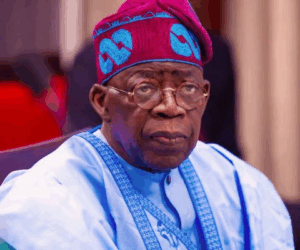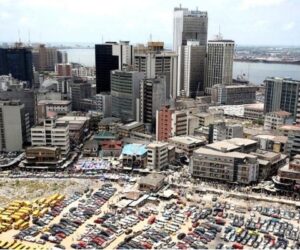…Past FX woes, caution fingered
Nigeria’s largest companies are tightening spending, taking a cautious approach on new investments due to past exchange rate shocks and high interest rates.
An analysis of half-year financial reports from 18 big firms listed on the Nigerian Exchange (NGX) shows a 12.7 percent drop in capital expenditure (CAPEX) — the money businesses spend on acquiring, maintaining, or upgrading physical assets such as property, industrial buildings, or equipment.
Collectively, the blue-chip companies spent N1.94 trillion on capital projects in the first half (H1) of 2025, compared to N2.18 trillion in the same period last year.
BusinessDay analysis covered MTN Nigeria, First Holdco, International Breweries, Okomu Oil, BUA Foods, Lafarge Africa, Transcorp Power, Nigerian Breweries, Presco Nigeria Plc, Transcorp Hotel, Transnational Corporation Plc, Wema Bank, and FCMB Group.
The analysis was also extended to Dangote Cement, BUA Cement, Nestlé Nigeria, Oando, and Dangote Sugar Refinery.
Capital expenditure estimates how much was spent to maintain or expand fixed assets. This is calculated by subtracting the current period property, plant, and equipment (PPE) from the prior period PPE and then adding depreciation.
Industry analysts say the decline in Capex signals a cautious investment approach from corporates still recovering from the shocks of currency devaluation, FX shortages, and rising interest rates earlier in the year.
Read also: Companies pause new debt in rate cut bet
“Companies are in a period of watchful waiting,” said Kemi Adedoyin, a Lagos-based investment analyst. “They are focusing on maintaining cash flow, repaying debt, and strengthening balance sheets, rather than committing to large-scale expansion projects.”
Tajudeen Ibrahim, director of research and strategy at Lagos-based investment bank Chapel Hill Denham, said companies typically embark on capital expenditure planning and spending at different periods, with some allocating more in the second half (H2) of the year.
“Some companies would have invested heavily in the past year. So, in the current year, they are either focusing on maintenance and repairs rather than growth-driven capex,” Ibrahim said.
Biggest declines: Dangote Cement, BUA Cement, Nestlé
According to BusinessDay analysis, the slowdown was more pronounced in firms such as Dangote Cement (down 70.8 percent), BUA Cement (86.3 percent), Nestlé Nigeria (77.1 percent), Oando (41 percent), and Dangote Sugar (35.7 percent).
For Dangote Cement, which reported the highest decline in capex to N293 billion in H1 of 2025 from N1 trillion in H1 of 2024, the drop followed a major investment cycle last year.
In December 2023, the company resumed the construction of a 6 million metric ton (mt/yr) cement plant in Itori, Ogun State, now slated for completion by November 2026. This project was partly why the company’s 2024 capex hit N1 trillion in H1 of 2024.
Analysts expect that in the second half of this year, more companies like Dangote Cement will see an increase in capex spending.
High credit environment
The Monetary Policy Rate (MPR), which is the benchmark interest rate in Nigeria, is 27.5 percent, meaning banks’ rates range between 30 percent and 40 percent.
Banks charged between 17.5 percent and 45 percent interest on loans granted to manufacturers between February 2021 and February 2025, a Central Bank of Nigeria (CBN) data said.
“Borrowing costs remains elevated, reflecting tight liquidity conditions and cautious lending behaviour by financial institutions, which continue to prioritise asset quality and risk management over aggressive credit expansion. As a result, households and businesses continue to face constrained access to affordable financing, limiting broader economic growth,”FBNQuest said on an August 15 note.
Read also: Nigerian companies with market capitalisation above $1bn
Naira: Past and present
The naira has struggled in recent times, falling by over 50 percent to over N1,500/$ in the last two years. Firms shut down, contracts were canceled and jobs were lost owing to poor exchange rate management.
However, the naira has enjoyed relative stability after steep volatility last year. Inflationary pressures, though still high, are showing signs of easing, and consumer demand in sectors like telecoms, banking, and manufacturing has begun to recover.
The capital spending slowdown is occurring against the backdrop of improving business confidence.
According to the latest Stanbic IBTC Purchasing Managers’ Index (PMI) report, the headline PMI climbed to 54.0 in July, up from 51.6 in June, marking a three-month high phenomenon and signaling a solid improvement in business conditions.
Nigeria’s Gross Domestic Product (GDP) grew by 3.13 percent (year-on-year) in real terms in the first quarter (Q1) of 2025, data from the National Bureau of Statistics (NBS) disclosed.
This growth rate is higher than the 2.27 percent recorded in the Q1 of 2024.
However, the International Monetary Fund (IMF) retained its position on the projection of a 3.4 percent expansion in the country’s real GDP for 2025 despite the change in methodology by the country’s statistics bureau.
Not all firms are holding back
Findings by BusinessDay also revealed that not all companies are holding back. Some, including MTN Nigeria, First Holdco, International Breweries, Okomu Oil, BUA Foods, Lafarge Africa, Transcorp Power, Nigerian Breweries, Presco Nigeria Plc, Transcorp Hotel, Transnational Corporation Plc, Wema Bank, and FCMB Group, increased their capital investments during the period.
MTN Nigeria stood out, recording the highest capex spend at N986 billion, a 208.2 percent jump from N319 billion in the H1 of 2024.
The telecom giant attributed the surge to higher right-of-use assets following the extension of tower lease contracts with IHS Towers and accelerated network expansion.
“These investments include capacity expansion initiatives aimed at easing congestion, the deployment of 240 additional 4G sites to expand coverage, the rollout of our fibre-to-the-home network, and the development of our new data centre. Excluding leases, capex increased by 288.4 percent, resulting in a 23.8 percent capex intensity,” the telecommunication firm disclosed in its H1 2025 earnings report.









